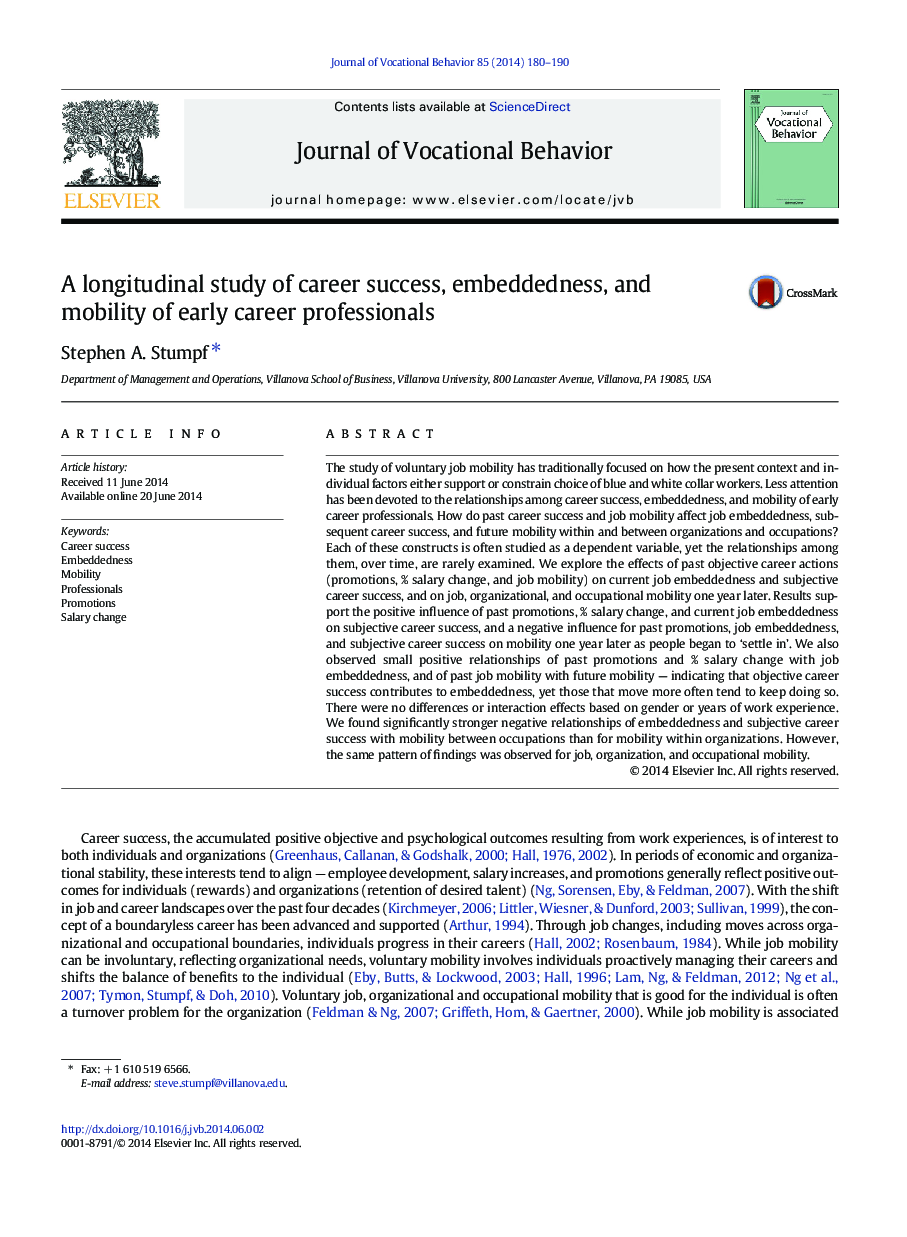| کد مقاله | کد نشریه | سال انتشار | مقاله انگلیسی | نسخه تمام متن |
|---|---|---|---|---|
| 886816 | 913144 | 2014 | 11 صفحه PDF | دانلود رایگان |
• Young professionals' early career mobility predicts mobility a year later.
• Poor job fit, few linkages with others, and few perks contribute to turnover.
• Promotions, % salary change, and job embeddedness predict career success.
• Promotions, embeddedness, and career success negatively relate to future mobility.
• Embeddedness and career success predict job, company, and occupational mobility.
The study of voluntary job mobility has traditionally focused on how the present context and individual factors either support or constrain choice of blue and white collar workers. Less attention has been devoted to the relationships among career success, embeddedness, and mobility of early career professionals. How do past career success and job mobility affect job embeddedness, subsequent career success, and future mobility within and between organizations and occupations? Each of these constructs is often studied as a dependent variable, yet the relationships among them, over time, are rarely examined. We explore the effects of past objective career actions (promotions, % salary change, and job mobility) on current job embeddedness and subjective career success, and on job, organizational, and occupational mobility one year later. Results support the positive influence of past promotions, % salary change, and current job embeddedness on subjective career success, and a negative influence for past promotions, job embeddedness, and subjective career success on mobility one year later as people began to ‘settle in’. We also observed small positive relationships of past promotions and % salary change with job embeddedness, and of past job mobility with future mobility — indicating that objective career success contributes to embeddedness, yet those that move more often tend to keep doing so. There were no differences or interaction effects based on gender or years of work experience. We found significantly stronger negative relationships of embeddedness and subjective career success with mobility between occupations than for mobility within organizations. However, the same pattern of findings was observed for job, organization, and occupational mobility.
Journal: Journal of Vocational Behavior - Volume 85, Issue 2, October 2014, Pages 180–190
